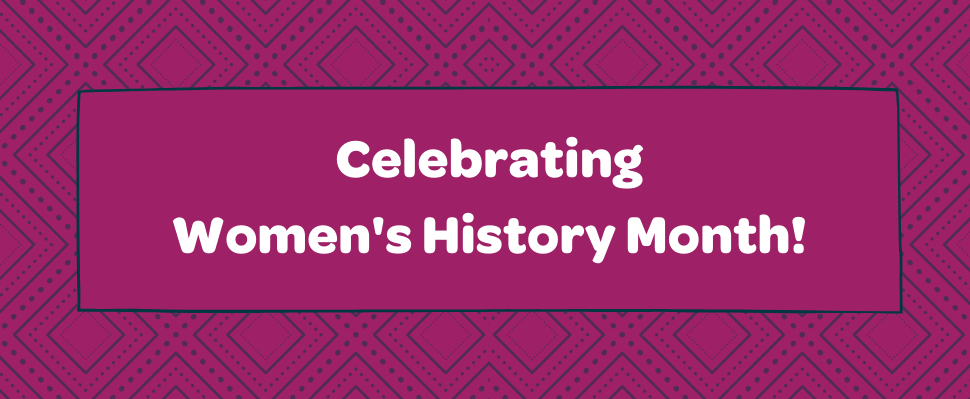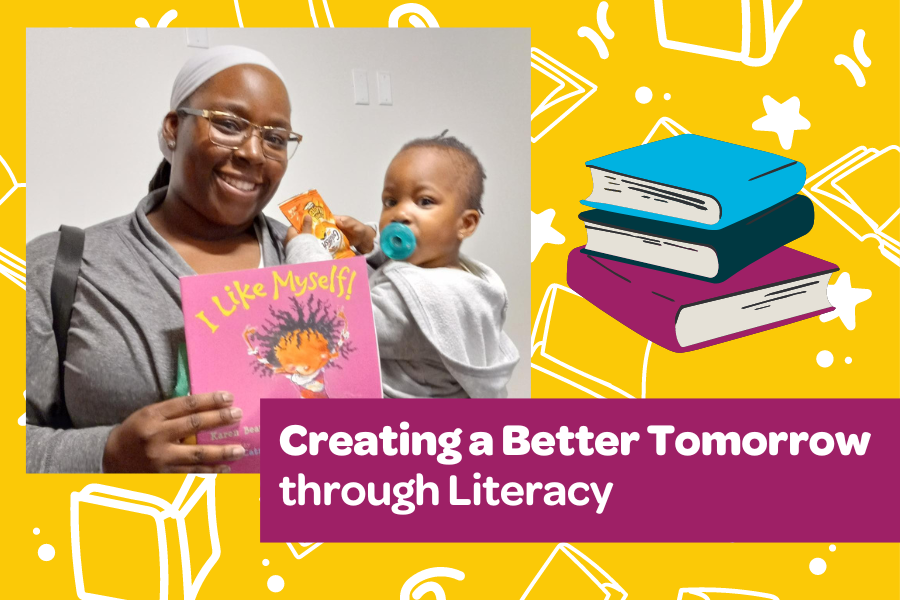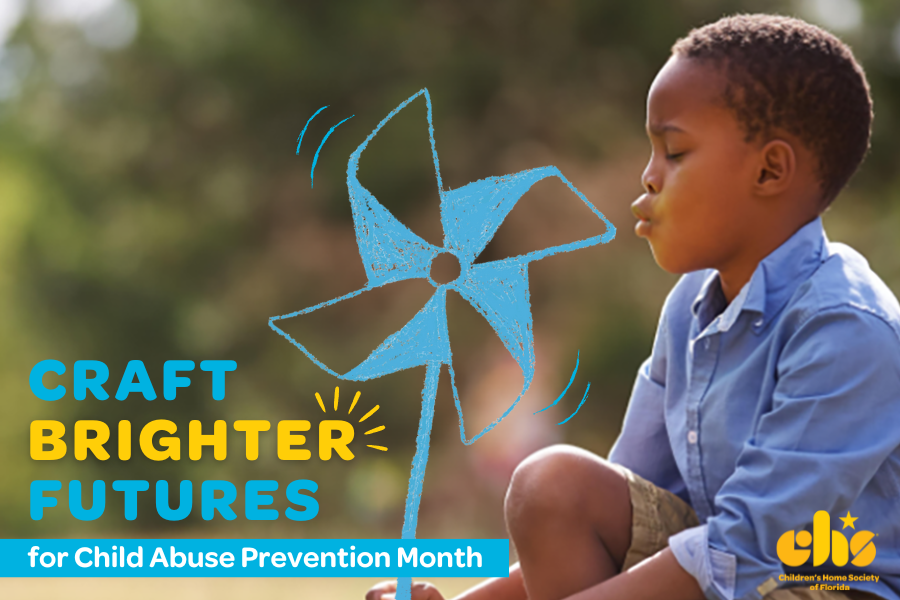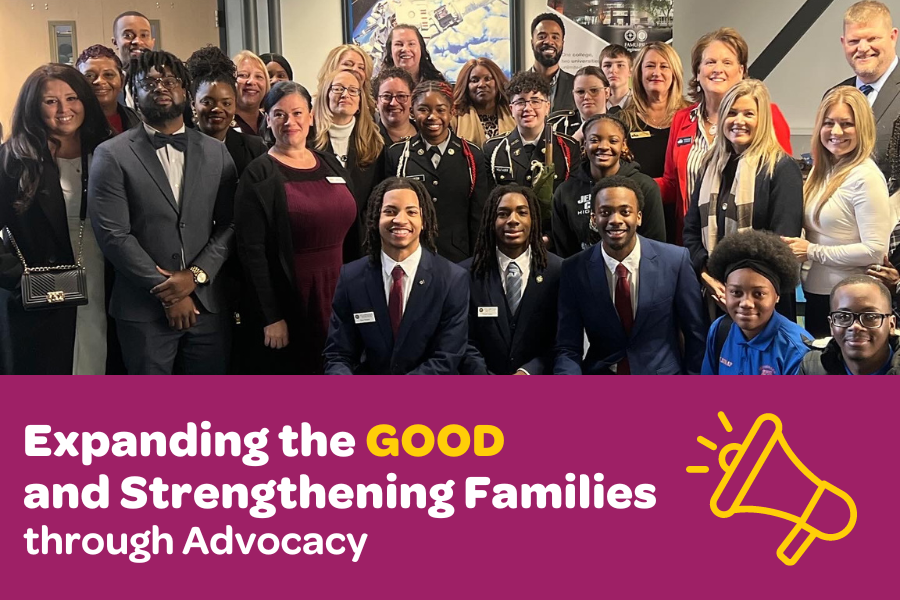Each March – and all year long – we celebrate the impact of women around us. It is a time of celebration to recognize the contributions of women to history, culture, and society. Recently, we were honored to come together to learn more about the historic contributions women have bestowed to our nation, as well as the field of child welfare… but that’s not all!
From case management to our counseling program, from early childhood to CHS leadership, we’re surrounded each day by monumental women throughout every rank, every program, every region of CHS, so we were pleased to learn more from a few as they shared more about their lessons learned, advice received and future goals. Their expertise and commitment to the empowerment of others move the needle in our mission of GOOD every day.
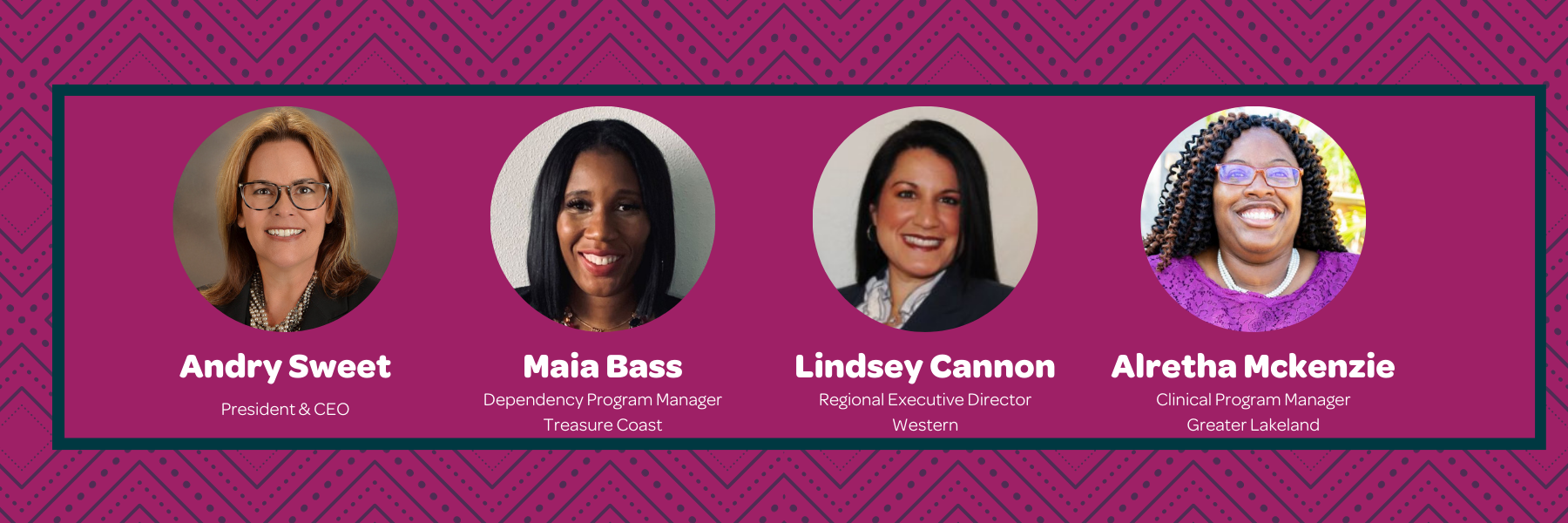
What has been your hardest struggle career wise and what about your character helped you overcome it?
Andry: “On every personality and behavioral assessment I’ve ever taken you’ll see one thing that stands out — I have a tendency to lean to the introverted side. Unlike my extroverted friends who talk to think, I think to talk and the silence can be deafening at times. Early in my career, I’d come to the table with solutions without sharing my thinking of how I got there. This left others thinking that I may not care about the opinions of others. Through career coaching and several amazing mentors, I learned that I needed to listen more, slow down a bit and share my thinking along the way, even if I didn’t have the solution developed in my mind yet. I’ve found by doing this that I have better results with stronger buy-in because we’ve shared the experience of exploring solutions together.”
Maia: “For me, determining when I was prepared to advance into management. I learned early on in while welfare that there was lot of red tape or politics. What I mean by that is that it not all about the children and families we service. I had to fully prepare myself to be prepared to make decisions that impact more than just the family I worked with as individual contributor. I had to become secure in my voice and my opinion and that at times my opinion or view would not always match those in the room because of personal difference. For me those difference at times was my race, age and gender.”
Lindsey: “One of the biggest hurdles I’ve faced is stepping into the RED position prior to me believing I was “old enough” to do so. There was an opportunity to step in and do the work alongside my really great team. I oversee really large area — an area that required me to step away from my family three days a week at first — but I knew I was making a difference that mattered and that fueled me. Especially taking place right after Hurricane Michael, so our entire service area was affected (if not destroyed). Stepping up in my leadership, I was able to get to know people quickly and utilize our resources in the best ways possible. I relied heavily on my faith during those long drives from Pensacola to Panama City, where I prayed and asked for guidance to do the job well and serve my team well.”
Alretha: “My biggest struggle has been being passionate. When I believe in something, I go 100% and not everyone may share the same passion at the same level right away. I’m extroverted, so I want to get everyone else involved in the work. Mentors have helped me throughout my career to better collaborate with others. I remember one of my prior supervisors asking me, after a period of my own frustration, “is the task getting done”. It had been, but I’d become frustrated by it not being completed by my step-by-step plan. She helped me realize that the end result is often more valuable then “running the show” every step of the way. I always go back to that advice. After all, when you allow others to go at their own pace, they come along with the passion, too. You have to allow them to process it their own way and not be in a rush because you’re overeager.”

Do you like to be noted as “a women in…” or do you prefer not being recognized solely because you are a woman?
Andry: “I prefer not being recognized solely as a woman in a CEO seat. I grew up with three brothers and we were treated equally by our parents and each other. We all have our own unique skills and talents and no matter what game we played, there was no handicap being a sister. I was treated as an equal. So, today, I prefer being measured on my merits — not by my gender. While it may be less common for a female to be a CEO, the job doesn’t change whether I’m a man or a woman. I’ve worked hard to be here and I deserve the job and the title without any qualifiers.”
Maia: “I am very comfortable being recognized as a woman. Being a woman, in addition being a black woman, in management is important to me every time I work with a family or walk into a meeting. It’s the first thing you notice when you see me and I embrace it. Me being in the room is so impactful for many children, families and team members I come into contact with. It gives hope, understanding and so much more!”
Lindsey: “I don’t feel like I need the distinction of a woman in my position, but I understand why others do, especially in male-dominated fields. For me, I want to be known as a leader who gets things done and stands in the gaps for children. I want others to recognize me as someone who does creative programming and loves kids… who gets out there and helps create our system of care. To be known by character and work product, rather than a woman in leadership, is what matters most to me!”
Alretha: “I want to be recognized as a women; so many who follow in my footsteps can see what they are capable of. You don’t know what you can dream unless you see it, exposure is key. In media you see a lot of nurses and doctors and teachers who are women, but not a lot of counseling or higher leadership. I want others to see themselves in me. For example, in a prior role as a teacher I wore dresses often (actually, I still do!), but I never noticed anyone paying attention. One day, one of my first graders mentioned to me that her mom dresses her in pants each day but she wants to wear the same dresses I do. She and her classmates recognized so many things about me that I didn’t even catch on to… like how feminine I could be but still take charge and lead a classroom and find success. I think it’s important for all little girls I serve — and little boys too — to see that is possible.”

What is the best piece of advice a woman gave you?
Andry: “‘Your vibe is your tribe’. You should surround yourself with good people who, like you, believe that all is possible when people come together to achieve a common goal and do good. I truly believe that!”
Maia: “Wow, that’s a great question. I come from a family of really strong women. I would say the most impactful would be my mother. She was unapologetic trail blazer for so many reason. She installed in me love for myself and told me that I could be anything I wanted to me. She reminded me of the power of being a women and I continue to live my live knowing my power as women.”
Lindsey: “The greatest advice I’ve received actually came to me from CHS Chief Operating Officer Kymberly Cook. She said: ‘Cooler heads always prevail!’ I practice this everyday by waiting a period of time to respond to emails when emotions are involved. It can be hard, especially with so much passion and care involved, but it allows me to craft my response and next steps with problem solving in mind, which is what matters most!”
Alretha: “‘Be yourself, you are enough. No matter how different you are.’ I was taught to be out of the box… even when I wanted to be like everyone else. It was instilled in me to not compare myself and to beat to my own drum. Through the years, I’ve found great value in being myself and being different. It’s resourceful to be able to bring something new to the table. After all, you can’t be the best at everything and we will be more successful if we let others work on what they’re strong at so we can grow together and have an even greater outcome!”






